16 Nov 2016
Matter of Interest | Legacy
The Hon. A.L. McLACHLAN ( 15:52 ): I rise today to speak about Legacy. All in this chamber would be aware of my strong support for the Australian Defence Force (ADF) personnel and veterans. I have previously spoken on post-traumatic stress disorder and the high unemployment and homelessness rates that can arise among veterans.
Legacy is an organisation that aims to assist families and dependants affected by the death of an ADF member. Australia-wide, Legacy currently provides assistance to approximately 80,000 families and 1,800 children and dependants of veterans. In South Australia, Legacy currently cares for 6,643 widows, 68 children, and 70 people with disabilities.
Legacy, or as it was originally called, the Remembrance Club, was established in Hobart by General Sir John Gellibrand in 1922. The intention of the Remembrance Club was to ensure that returned servicemen were cared for when they returned to Australia. This was an important principle because, of the 300,000 Australians who served in World War I, 152,000 were wounded and 4,000 had been prisoners of war. In 1925, Legacy also expanded to ensure that the children of servicemen were cared for. This was a vital transition for the organisation, as approximately 60,000 Australians died in World War I, leaving behind wives and children that had relied upon their husbands and fathers for financial security.
Since its inception in 1922, Legacy has evolved into a vital organisation that has a variety of programs and financial aid to assist not only widows but also widowers, children and returned ADF personnel referred by the Department of Veterans’ Affairs. Those that volunteer for Legacy and provide assistance for the families and dependants that Legacy support are known as legatees. Australia wide, there are currently 6,000. I am one myself. Children especially find the services that Legacy provides useful to their development. Ben Cox, who lost both parents at a young age, says:
I could always call my legatee and talk about how much I missed my mum. I c ould call him about how much I missed my dad.
The children also benefit from holiday camps Legacy organises, with the organisation taking 450 children on camps annually. Debra was a junior legatee and describes the great influence Legacy had on her childhood:
Some of the greatest times of my childhood were spent attending Legacy weekend and summer camps. I got to experience things I may never have had the chance, including skiing and white water rafting.
Legacy also assists families with children in need of financial assistance, in areas such as uniforms, school fees, textbooks, scholarships and medical fees. Pensioners and the elderly also get much-needed assistance from Legacy, with 5,000 widows joining Legacy annually. A majority of these pensioners are aged 85 years and over, and require a special level of care and services.
Annually, Legacy assists with 3,000 pension entitlement assistance inquiries, installs 3,500 emergency medical alarms, conducts 8,000 home maintenance visits, runs 3,000 care programs and makes 40,000 home visits and calls. Legacy is not only able to assist those families that have a deceased relative; Legacy is also able to assist those families with ADF members who have served but have experienced life-altering injuries while in the ADF.
An example of Legacy’s work with returned ADF personnel is seen with Ed Bennett. Mr Bennett was deployed in Kandahar with the Australian Army where he suffered a major brain injury due to a fall. Legacy helped his family by providing food, travel and assisting his children. Legacy relies on private donations to raise 95 per cent of its annual funding. Between 28 August and 3 September this year, many of you in this chamber would have seen around 2,000 legatees, volunteers and members of the ADF raising money for Legacy Week.
Legacy Week was established in 1942 and is Legacy’s annual fundraising campaign to generate enough revenue to support the services it provides. Last year Legacy South Australia and Broken Hill managed to raise approximately $360,000 during the campaign. The continual funding for Legacy is required due to the increased assistance needed for widows, widowers and their families. It is predicted that the expenditure for these groups will not decrease until approximately 2020.
Legacy is an important Australian organisation. It exists to provide programs and financial assistance to families of ADF personnel who have died, and in some cases those who have served and returned with life-altering injuries. It is important that the broader South Australian public continues to be reminded of Legacy’s important work and support Legacy with their generous donations. This in turn will enable Legacy to continue to provide its important services to the community.
View source
